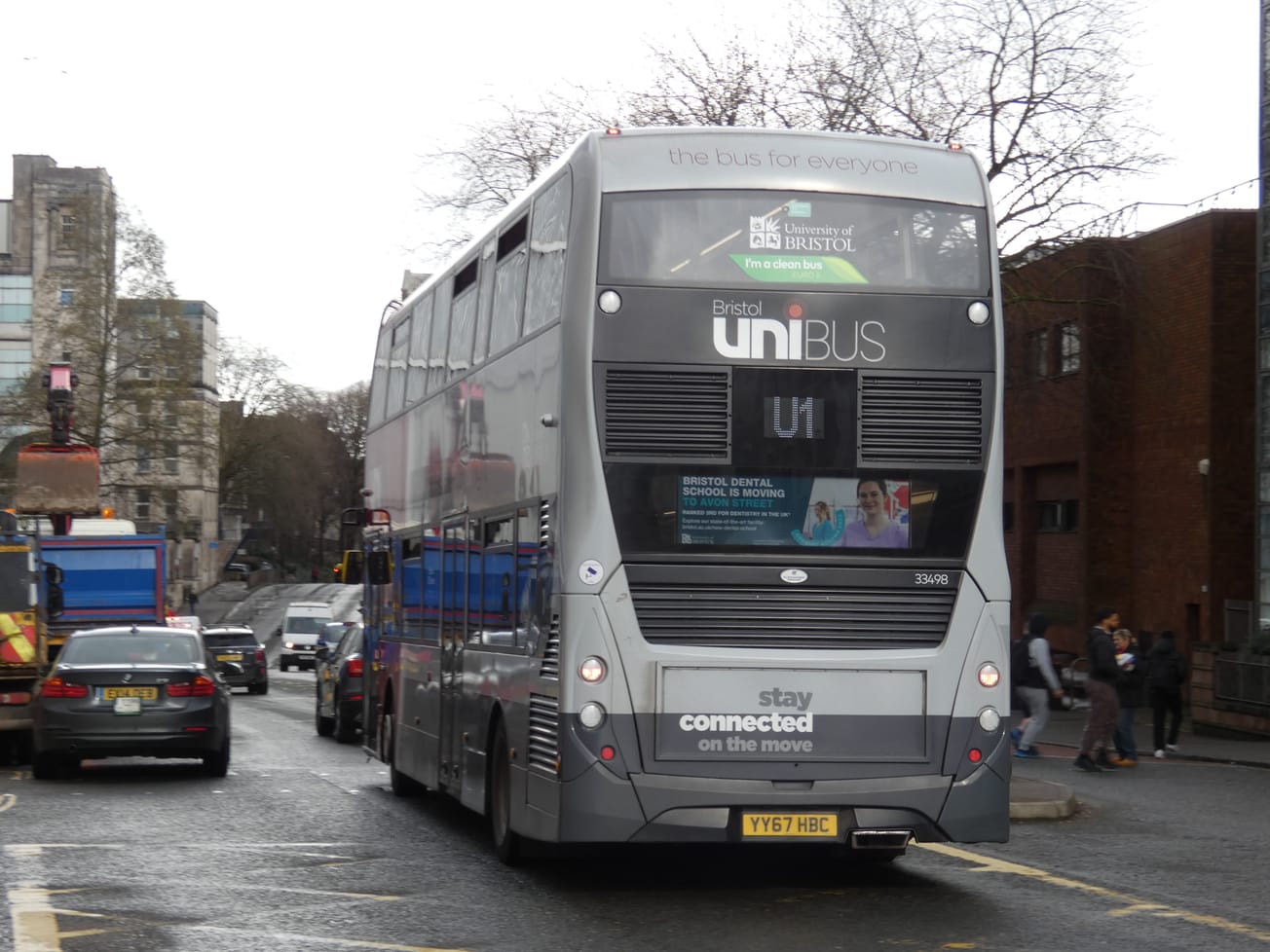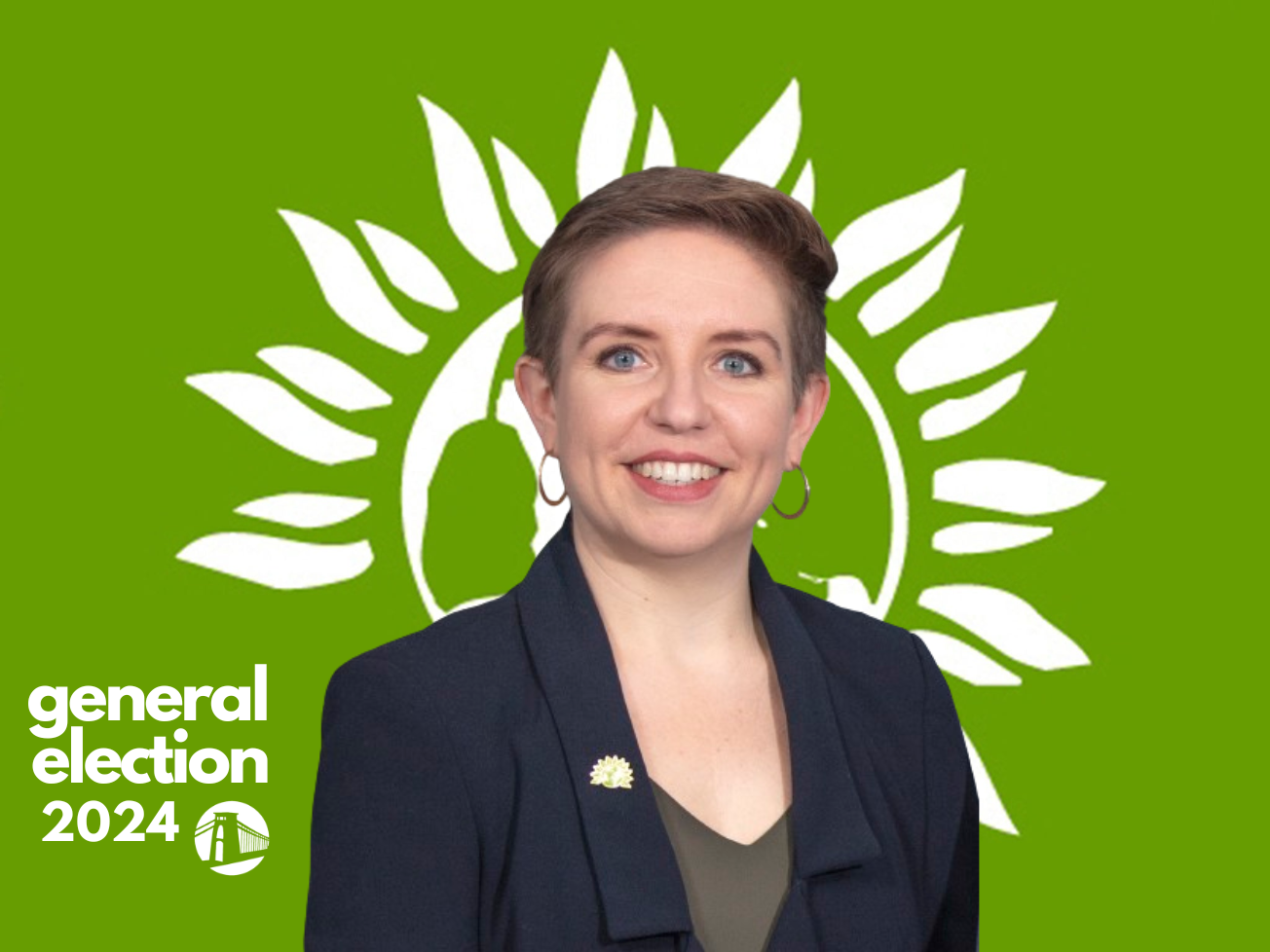By Alannah Mylechreest, Second Year, English and German
Bristol’s public transport has been a cause of frustration for countless students. It is an issue intertwined with the climate, housing and cost of living crisis, and, yet, it is an issue that has seen few positive developments.
Late to a lecture, left out in the rain, forking out for a taxi to get back home after a night out - these are all familiar situations for students in Bristol, often caused by an unreliable bus service that, combined with national bus driver shortages and axed routes, only seems to be getting worse.
To gain an insight into the experiences of students who use the public transport system in Bristol, Epigram spoke with Katie and Megan, two second-year students who live a 50- and 45-minute walk from campus respectively. Although they take completely separate buses on differing services, both felt equally frustrated with the unreliability of the Bristol bus service.
Megan told Epigram that she couldn’t remember the ‘Last time that the bus was on time’, going on to say ‘It’s always at least 10 minutes late every morning, and it can vary each evening from 5 minutes late to 30.’
Katie described the 72 bus line, the only service that directly connects the Bishopston, Horfield and St Andrew’s area of Bristol to campus, as a ‘Nightmare.’
‘There’s only one on the hour and it used to be a single decker. So every morning you would never be able to get on at all. Because everyone in Bristol seems to want to get on the 72, we all emailed the bus company and they changed it to a double decker, which is better. But I don’t understand why it doesn’t ever come on time. It’s always 20 minutes late.’
The Bristol bus system is probably one of the worst in the world. Now First is introducing new on-board officers who will charge people £50 for having the wrong ticket. Can we prioritise making sure the buses show up on time please https://t.co/OBsIe79dtx
— Charlie Watts (@char1iewatts) February 22, 2024
When asked if the unreliability of buses in Bristol had an effect on her education, Katie was confident that it had: ‘If the bus hasn’t arrived in time I end up being too anxious to go into lectures late, so I just don’t go at all.’
The ongoing housing and cost of living crises have pushed more and more students like Katie and Megan away from the ‘typical’ student areas that are within walking distance of the university, resulting in an increased reliance on buses. In addition, the University of Bristol made headlines last year for housing students 30 miles away from campus in the Newport Student Village, meaning students situated there have to rely on a one hour bus journey to get to campus each day.
'private companies seem focused on cutting prices instead of focusing on providing a reliable service'
For students with mobility issues or those who live far from campus, driving is presented as an alternative. As many struggle to afford rent and groceries, however, the additional costs of petrol and insurance do not seem as desirable as paying the £1.70 student single ticket and braving the bus.
In such an environmentally conscious city such as Bristol, bus transport is also favoured due to an increased awareness of the harmful effects that car-emitted pollution has on the environment.
It is noteworthy that policy makers acknowledge this environmental issue, as evidenced by initiatives like the Bristol Clean Air Zone, yet little has been done to improve and encourage people to use other transport options.
The only significant change was that from August 2023, Travel West offered anyone living in the West of England free bus travel during their birthday month. This does give people the opportunity to save hundreds of pounds on their travel expenses, but considering this offer only applies to buses in the west of England, many students with birthdays outside of term time won't be able to take full advantage of the scheme.
Alongside this, many of the complaints from University of Bristol students and the wider public revolve around the quality of the service being provided - not its price.
It is undeniable that the public transport system in Bristol needs improving, but the question remains as to what the best solution is. One idea that has been proposed is the installation of a light rail system. Compared to many other big UK cities, Bristol does not have its own tram line - a deficiency which, in turn, has placed a greater burden upon the already strained bus system. Trams have been proposed in the past, and a network of underground trains has also recently been considered, although plans have since been vetoed.
Another solution that has been offered is to franchise Bristol’s public transport system. Buses have been deregulated outside of London since 1986, meaning the transport systems in most cities in Great Britain are controlled by two or more competing companies.
Franchising would result in local authorities gaining control over the planning of bus services and would allow them to determine not only the frequency of buses and the routes they take, but also the service standards that are set.
Private companies then bid to obtain a contract and are chosen on their ability to fulfil the requirements set by the local authority. Bristol City Council's ability to monitor the performance of the companies providing this public service allows a more flexible bus network in Bristol.
Various politicians have called for the transport system to be reorganised. Carla Denyer, the co-leader of the Green party and Councillor for the Clifton Down Ward, has been very outspoken about franchising as a solution. During a serious national bus driver shortage in November 2022, she stated that ‘Public buses should be under public control - run in the public's interest, not for the benefit of shareholders.’
‘It can be very isolating coming to university without that familial support’ | How estranged students navigate university life
At the worst of my disorganisation I was wearing the same clothes for weeks’ : The student experience of ADHD
Bus franchising has also been in local news in recent months. In September 2023 Extinction Rebellion held a march criticising First Bus, demanding that buses be publicly owned. West of England Mayor Dan Norris has also been recently reported as considering the possibility of franchising buses in Bristol, although little concrete action has been taken as a result.
As it stands, the public transport that is being provided to people that live in Bristol is inadequate. With students missing out on key hours of contact time, and wider disruptions inevitable for the general public, private companies seem focused on cutting prices instead of focusing on providing a reliable service.
Featured image: Epigram / Dan Hutton
Have you been late for a lecture because of bus delays?








